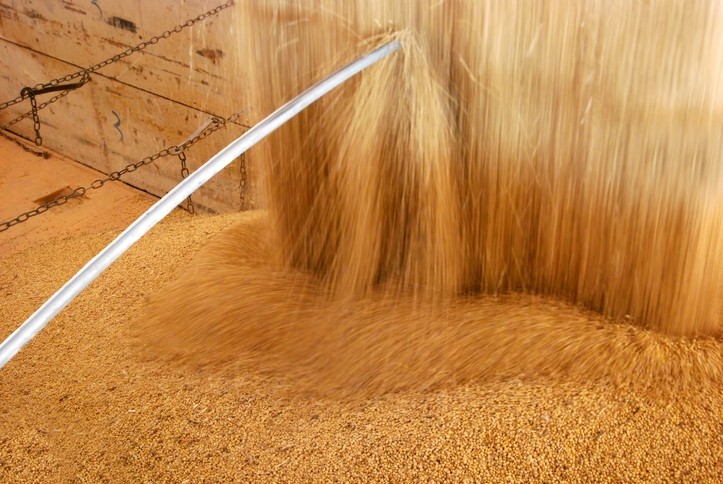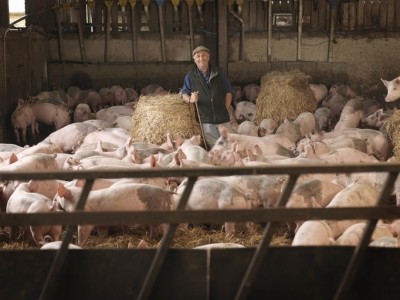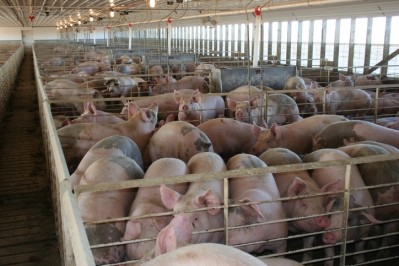Study: DNA from ASF virus can be detected in feed one year after contamination

A paper in the journal Transboundary and Emerging Diseases looked to determine the length of time ASFV remains stable in feed at different storage temperatures. The study was conducted by a research team led by Dr Megan Niederwerder, ASFV expert and associate director of the Swine Health Information Center in the US.
African swine fever virus (ASFV) causes high case fatality in pigs and a trade-limiting disease resulting in significant economic losses to pork production.
"As ASFV is transmissible through consumption of contaminated feed, the objective of this study was to evaluate the stability of ASFV Georgia 2007 in three feed matrices exposed to three environmental storage temperatures for up to 365 days. ASFV DNA was highly stable and detectable by qPCR in almost all feed matrices through the conclusion of each study," concluded the authors.
The data, said the team, will help define risk of ASFV introduction and transmission through feed ingredients.
The findings also indicate that medium chain fatty acids (MCFAs) and formaldehyde-based feed additives are effective at reducing ASFV infectivity in complete feed during storage.
“Previous estimates of ASFV stability in feed were based on fluctuating temperature and humidity conditions consistent with global trade,” Niederwerder said. “Novel data generated in the current study defines ASFV stability in feed at constant temperatures. This was an essential next step to guide holding-time recommendations for high-risk feed ingredients within feed mills and swine farms.”
Feed matrices tested
In the published study, the stability of ASFV Georgia 2007 was determined in three feed matrices: complete feed, soybean meal, and ground corncob particles.
After ASFV contamination, feed matrices were held at three environmental temperatures - cool storage at 40°F, ambient storage at 68°F, and hot storage at 95°F - for up to 365 days.
Feed samples were tested throughout the one-year period for ASFV genome detection on PCR and ASFV infectivity on cell culture and in swine bioassay, said the researchers.
High stability of ASFV DNA in feed
Results demonstrate high stability of ASFV DNA in feed, with detection by PCR in almost all feed matrices throughout the conclusion of each study, including 365 days after ASFV inoculation when stored at 40°F and 68°F.
The team saw that infectious ASFV was most stable in soybean meal, with the virus maintaining infectivity as determined by swine bioassay for at least 112 days at 40°F, at least 21 days at 68°F, and at least seven days at 95°F.
Additionally, feed additives were tested for their ability to reduce ASFV infectivity in complete feed stored at three environmental temperatures (40°F, 68°F, 95°F). Both MCFA and formaldehyde-based feed additives were confirmed to be effective mitigants in tested conditions.
The authors said their results help define the risk and mitigation of ASFV introduction through feed, the findings also confirm the thermal sensitivity of ASFV in feed, and they underscore the stabilizing environment of soybean meal.
“Providing the most comprehensive data on ASFV longevity in plant-based feed to date, this study confirms ASFV DNA can be detected in feed at least one year after contamination.
“Further, swine bioassays demonstrate that infectious ASFV can be present in soybean meal for several weeks after testing negative on cell culture.”
Minimum holding time recommendations were generated in this research for three environments, providing producers and feed mills key guidance to reduce ASFV risk in feed, said Niederwerder.
“Feed biosecurity should be considered a fundamental part of all swine biosecurity plans. This foundational study furthers our goals toward ASFV prevention and protection of US swine herd health," she added.
The research was supported by funding from the National Pork Board and the Foundation for Food and Agriculture Research, the State of Kansas National Bio and Agro-defense Facility Fund, Purina Animal Nutrition, Cargill Animal Nutrition, and Kemin Industries.








